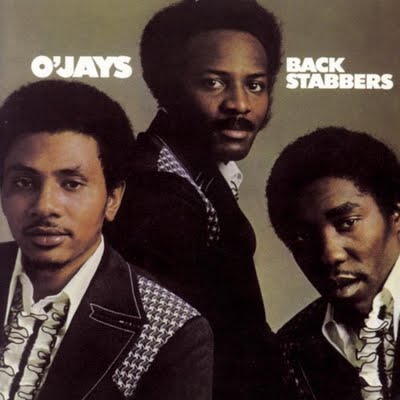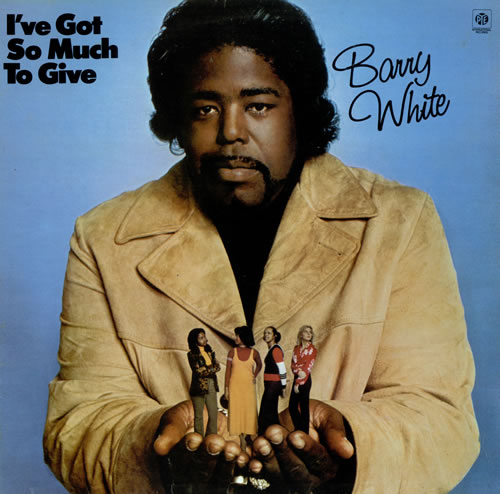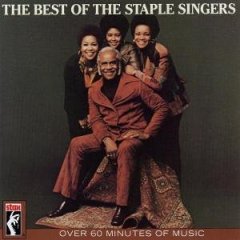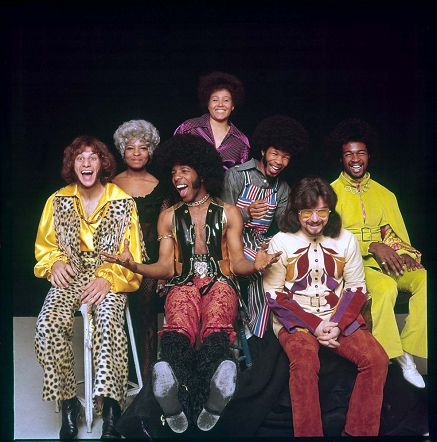 The same rule applies for fathers who use their kids as pawns. It is NEVER a good idea to use your children to hurt your ex.
The same rule applies for fathers who use their kids as pawns. It is NEVER a good idea to use your children to hurt your ex.
The Impact of Fathers on Psychological Well-Being and Social Behavior
Even from birth, children who have an involved father are more likely to be emotionally secure, be confident to explore their surroundings, and, as they grow older, have better social connections with peers. These children also are less likely to get in trouble at home, school, or in the neighborhood.13Infants who receive high levels of affection from their fathers (e.g., babies whose fathers respond quickly to their cries and who play together) are more securely attached; that is, they can explore their environment comfortably when a parent is nearby and can readily accept comfort from their parent after a brief separation. A number of studies suggest they also are more sociable and popular with other children throughout early childhood.18
The way fathers play with their children also has an important impact on a child’s emotional and social development. Fathers spend a much higher percentage of their one-on-one interaction with infants and preschoolers in stimulating, playful activity than do mothers. From these interactions, children learn how to regulate their feelings and behavior. Rough-housing with dad, for example, can teach children how to deal with aggressive impulses and physical contact without losing control of their emotions.19 Generally speaking, fathers also tend to promote independence and an orientation to the outside world. Fathers often push achievement while mothers stress nurturing, both of which are important to healthy development. As a result, children who grow up with involved fathers are more comfortable exploring the world around them and more likely to exhibit self-control and pro-social behavior.20
One study of school-aged children found that children with good relationships with their fathers were less likely to experience depression, to exhibit disruptive behavior, or to lie and were more likely to exhibit pro-social behavior.21 This same study found that boys with involved fathers had fewer school behavior problems and that girls had stronger self-esteem.22 In addition, numerous studies have found that children who live with their fathers are more likely to have good physical and emotional health, to achieve academically, and to avoid drugs, violence, and delinquent behavior.23
In short, fathers have a powerful and positive impact upon the development and health of children. A caseworker who understands the important contributions fathers make to their children’s development and how to effectively involve fathers in the case planning process will find additional and valuable allies in the mission to create a permanent and safe environment for children.
http://www.childwelfare.gov/pubs/usermanuals/fatherhood/chaptertwo.cfm#fn14
Captive Audience
Every morning when I pick up my kids from my ex-wife at 7:15AM, my kids get in the car, we say hello to each other and are on our way to school.
 We don’t get very far if there is no music coming from the speakers. My son or daughter will speak up and demand that I turn on some music. It’s cool with me because I have a hard time riding in the car in complete silence. Even if I’m by myself driving for hours, I prefer music or talk radio to keep my mind active. I guess this habit is now being transferred to my kids.
We don’t get very far if there is no music coming from the speakers. My son or daughter will speak up and demand that I turn on some music. It’s cool with me because I have a hard time riding in the car in complete silence. Even if I’m by myself driving for hours, I prefer music or talk radio to keep my mind active. I guess this habit is now being transferred to my kids.
I can see now that I can expose them to all kinds of thing. My kids know what they like and don’t like. They seem eager to hear new sounds. There are times when I’m incredibly tired and just let the music service Pandora find songs. Other times I prepare things from a playlist of mine from iTunes or Spotify. There are a few mornings where they even ask for specific songs. Whatever way the music is delivered, I have a captive audience.
A few days ago, I set up a playlist in iTunes of soul music from a collection of songs from 1968-1975. In my opinion it’s the greatest era of popular music in America. There was some great music created during that era. Most of it was due to significant cultural changes at the time. As we were pulling away from my ex’s apartment, ‘Backstabbers’ by the O’Jays started playing. Next up was ‘I’ll Take You There’ by the Staple Singers. Third on the playlist was ‘I’m Gonna Love You Just A Little More Baby’ by Barry White. Aw man, it was on! The party had begun…yes, at 7:30 in the morning.
 I had to do a little ‘splainin’ when that song came on. I have told my kids the reason why I love Barry White’s music. I told them the story of how, at age 14, his voice changed from a high-pitched Michael Jackson voice, to a tenor then bass in a matter of days. In his autobiography he said that after his voice changed, he would be in an elevator and someone would call out for the floor. He’s say, “Top please,” and everyone’s head would turn around to see where that voice was coming from. I tell my kids the stories how I grew up listening to all of his records in the 70’s. My mother was a big fan of Barry and she used to wake me up every Saturday with her Kirby vacuüm cleaner, blasting Love Unlimited and Teddy Pendergrass. She never got enough of Barry and Teddy.
I had to do a little ‘splainin’ when that song came on. I have told my kids the reason why I love Barry White’s music. I told them the story of how, at age 14, his voice changed from a high-pitched Michael Jackson voice, to a tenor then bass in a matter of days. In his autobiography he said that after his voice changed, he would be in an elevator and someone would call out for the floor. He’s say, “Top please,” and everyone’s head would turn around to see where that voice was coming from. I tell my kids the stories how I grew up listening to all of his records in the 70’s. My mother was a big fan of Barry and she used to wake me up every Saturday with her Kirby vacuüm cleaner, blasting Love Unlimited and Teddy Pendergrass. She never got enough of Barry and Teddy.
I feel the Barry White song I played for them is damn near perfect. I spent many days in our basement as a kid learning how to play drums to this songs. I explained to my kids the anatomy of a great piece of music. I showed them how the drum beat that starts the song is inventive, grooving and funky as hell. Then the clavinet sneaks in after a few bars. That booming baritone voice of Barry slides in and then the song builds from there. The song simmers for a while then the heat gets turned up as the song goes on. I wouldn’t describe the song in this fashion but I would compare that song to any really good sexual encounter. If you know what you are doing, you should have a similar experience as that song. I think you get my point once you hear the song. Of course I didn’t tell my kids thus, but I digress…
I went into a few more details about how many layers of instruments are all mixed together to make this auditory masterpiece. It’s rare to hear things done so well today.
If that wasn’t enough good music, as we got closer to school, ‘Family Affair’ by Sly and the Family Stone came on. I said nothing. I wanted to hear what they had to say. My son usually stays quiet and lets my daughter do the talking, unless the song sucks and he’ll say, “Dad, next song please!”
My daughter heard Sly’s voice. She asked, “Who is this.” I told her it is Sly Stone. She said, “Wow, I love his voice.” I’m smiling on the inside because I see they might just have similar taste in music as I do-at least right now. I gave her a 1 minute history lesson on Sly but didn’t get too deep because I think they had enough of my master class I gave them on Barry White a few minutes earlier.
Great songs are great songs. They transcend generations. Every day, our playlist is something new. They seem to like all kinds of music. The one type my daughter has yet to appreciate is metal. Maybe it’s because I played Metallica, Slayer, Lamb of God and Meshuggauh for her. Too soon?
They love classic hip hop, modern pop and soul. I quiz them from time to time on who is singing to have a little fun. I tried to see if my daughter could tell the difference between Stax and the Motown sound. She got a few right but it might take her a little more time and exploration. She still can’t tell if a song is sung by James Brown or Ray Charles yet, but that will come soon enough. I sing the Ray Charles tune ‘Hallelujah I Love Her So’ to my daughter from time to time when I’m in a good mood. I can tell she likes it by the little smile on her face. And yes, I love her so….I love my little man too. I have yet to pick out a song specifically for him but I do sing the song ‘Baby Boy, Baby Girl’ by Mint Condition to the both of them on certain occasions.
It’s fun teaching my kids about music history. I absolutely love learning the history of American music since the 50’s and maybe some of that love for this aspect of our culture will be transferred from generation to generation of Craddock kids. They certainly have a library to learn from and study when I die. With over 2500 LPs, 300 cassettes, 16 8-Track tapes, over 250 45’s, 70,000 mp3s they will inherit quite a library. By the time they have kids, they might not have anything but streaming services or some other method of music delivery. Changes are happening fast and who knows what will happen in 50 years.
What I do know is that they might have a captive audience when they take their kids to school. They may tell their kids about how their father used to play all kinds of music on the way to school and how much fun it was. I hope to live long enough to talk with my grandkids about how great music was when I was a kid and how their music sucks (like all older people do). They might just agree with me, or just call me old-fashioned. That’s cool. They’ll eventually come around.
THE END OF MEN!
[brightcove vid=1813362470001&exp=271557391&lbu=http://www.thedailybeast.com/articles/2012/09/12/new-book-suggests-it-s-not-the-end-of-men-but-they-are-in-trouble.html&w=486&h=412]
It looks like it’s over…well , maybe not.
Domestic Violence Against MEN?
- Is she always blaming you for problems in your relationship?
- Do your conflicts really ever get resolved?
- Is she always controlling the relationship or you?
- Are you constantly confused or insecure about where the relationship is going?
- Does she run hot and cold, fly into rages out of the blue and blame you for them?
- Do you feel trapped or cornered?
- Does she put you on a guilt trip for expressing your opinion — or are you afraid to even express your feelings or opinions?
- Do you feel like you’re always walking on eggshells for fear you’ll say the wrong thing?
- Is everything you do or say being scrutinized or judged by her?
- Does she make you feel worn down mentally and physically until you just give in to what she wants?
“If you answer yes to these questions, I would tell you that it is not normal. You are being emotionally abused. As a victim, no matter what you are being told, you must know that it is not your fault and know that the abuser has no intention of changing. The only thing you can do is leave. Get someone to help you pack your bags and stay away from this person. Never go back. She means you harm.”
Switching a word around in a paragraph makes you think differently. Insert the word he instead of she and it sounds totally different. Read the original here. I did this to make a point. Domestic abuse, and I would include emotional abuse, as well as physical violence, affects women as well as men.
One may assume that domestic abuse rarely, if ever happens to men. A growing number of studies and research tend to see things in a new light. New surveys have shown that men and women assault one another and strike the first blow at approximately equal rates. According to a 2010 national survey by the Centers for Disease Control and U.S. Department of Justice, more men than women were victims of intimate partner physical violence and over 40% of severe physical violence was directed at men. Men and women engage in overall comparable levels of abuse and control, such as diminishing the partner’s self-esteem, isolation and jealousy, using children and economic abuse; however, men engage in higher levels of sexual coercion and can more easily intimidate physically. Recent studies have found that a man who calls the police to report domestic violence is three times more likely to be arrested than the woman who is abusing him.
Awarness is key to understanding that men are victims too. Domestic violence needs to stop completeley. If it is initiated by men or women, it is unacceptable. Our culture views women and children as the only members of society that can be victims. Well, that is not the case. In the future, pay close attention when the words ‘abuse’ or ‘victim’ are used. You rarely, if ever hear men being described as victims. Men tend not to report the fact that they are victims for several reasons. Some of the reasons why men keep things to themselves is due to our country’s socialization for self-reliance, instance on having courage or being afraid to being called a wimp, having low self-esteem, feelings of powerlessness, having no advocate, economic dependence due to the increasing economic parity in many homes, protection of children, complete denial, belief in the abuser’s excuses, belief in the sanctity of marriage and the marriage vow, belief that the abuse will eventually subside on its own, without outside intervention, the victim is in the military service and dozens of other reasons including having no knowledge of options and resources, even if they exist.
I think this video helps prove my point.
[youtube http://www.youtube.com/watch?v=zusb6VuF1jI]
For more information, check out the following links:
Contact – The Joyful Heart Foundation
Read – this book– Domestic Violence: The 12 Things You Aren’t Supposed to Know by Thomas B. James
Call – The National Domestic Violence Hotline: 800-799-SAFE or 800-799-7233. The hotline provides crisis intervention and referrals to resources.
Palestinian Women No Longer Need Husband’s Permission for a Divorce
I heard this on NPR yesterday and found it to be very interesting.
[soundcloud url=”http://api.soundcloud.com/tracks/59401721″ params=”show_artwork=false&auto_play=false&color=ff7700″ width=”100%” height=”166″ iframe=”true” /]


